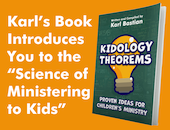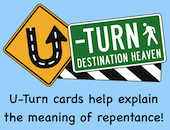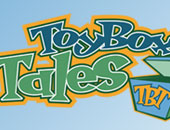My Top Five Parenting Failures
Membership Level› Guest
Author/Source: Mark Harper
Topic: Parenting, Relationships
Every parent makes mistakes. Every parent feels like a failure at times. Here are some helpful tips to improve the way you communicate with and raise your kids.

I love the following quote from Mark Twain.
“When I was a boy of 14, my father was so ignorant I could hardly stand to have the old man around. But when I got to be 21, I was astonished by how much he’d learned in a few short years.”
People refer to this quote by Mark Twain when they are talking about how kids begin to appreciate their parents after they leave home and become adults. I want to look at this quote from the other side.
As I write this blog, my kids are 31 and 29 years old.
Sometimes I wish I could have a do-over, and then I rethink that thought.
I do not want to go through that again.
I love my children, but helping your child become an adult is painful. My point is that I became a better parent after walking through this painful process.
Life will not give me a do-over, but I can share with you about my parenting failures in the hopes that you may not make the same mistakes that I made. If I did get a chance for a do-over, these are the top five things I would do differently.
1. I would teach my kids to think for themselves.
For years I thought I was a good parent because my kids obeyed me, but obedience is just first base. The home run is to get our kids to think for themselves and make wise decisions.
It’s good if kids obey their parents, but it’s better if they obey God. We don’t own our children. As parents, we are stewards of our children. Ultimately, our kids belong to God.
2. I would control my anger.
Every one of us deals with anger, but we process it differently. Anger tells you when someone has crossed your boundaries. Anger is a normal part of life, but it’s wrong to use your words in anger to punish your kids. (Yelling is almost always wrong.)
When my kids were teenagers, I am ashamed to admit that I did a lot of yelling. It wasn’t until my son had left home that I learned how to bite my tongue and control my temper. Here is a scripture that helped me:
“A fool shows his annoyance at once, but a prudent man overlooks an insult.”
3. I would kiss dating hello.
When my kids were young, I read a book called I Kissed Dating Goodbye.
I talked with my kids about courting instead of dating. They thought it was great too. Of course, they were only eight and ten at the time. When they became teenagers, their thoughts changed.
My son’s first girlfriend was a poor choice, but by the time we found out he had a girlfriend, it was too late. They were already emotionally involved. (My son didn’t feel like he was allowed to date, so he hid it from us.) Instead of encouraging communication with our son, the concept of courtship hindered it.
Courtship sounds great to a parent. “I get to decide who you date.” One reason this may feel so good to a parent is that we are afraid to trust our kids to make wise choices in this area and we don’t want to see them get hurt.
Deb did a better job with our daughter. When Missy was a teenager, she would talk to her Mom about the boys she liked. Deb would say things like, “Oh, I think he is cute too.” Mom became her best friend.
The goal is to keep the communication lines open–especially during the dating years. Your teenagers need you!
4. I would let my kids say, “No,” to me, sometimes.
Why is it important that my kids learn to say no?
The most basic boundary word is the word, “No.” If our kids don’t know how to say no they won’t have healthy boundaries.
If we teach our kids to always say yes, then they don’t know how to say no. They will say yes to the good and the bad, and that is not okay. We have all seen good kids who grew up in a Christian home and then freak out when they get to college. One reason this happens is they don’t know how to say, “No.”
Here is something I see with some frequency: Many Christian parents will force their kids to share their toys when a friend comes over. However, there needs to be a few things that they don’t have to share. By doing this, you empower your kids to say no and it helps them understand that their 'no' has power.
5. I would say, “Yes,” to my kids more frequently.
When you are a parent of young kids it feels like your whole life rotates around the kids. It’s a dream to go on a date night with your spouse or maybe just go grocery shopping without the kids. However, when I look back, most of the time I was only thinking about things from my perspective.
I find that many of us also do this at church. We look forward to sitting in the sanctuary and getting a break from our kids. The problem with this is that we are missing out on a huge part of our kid’s life – his or her time at church












